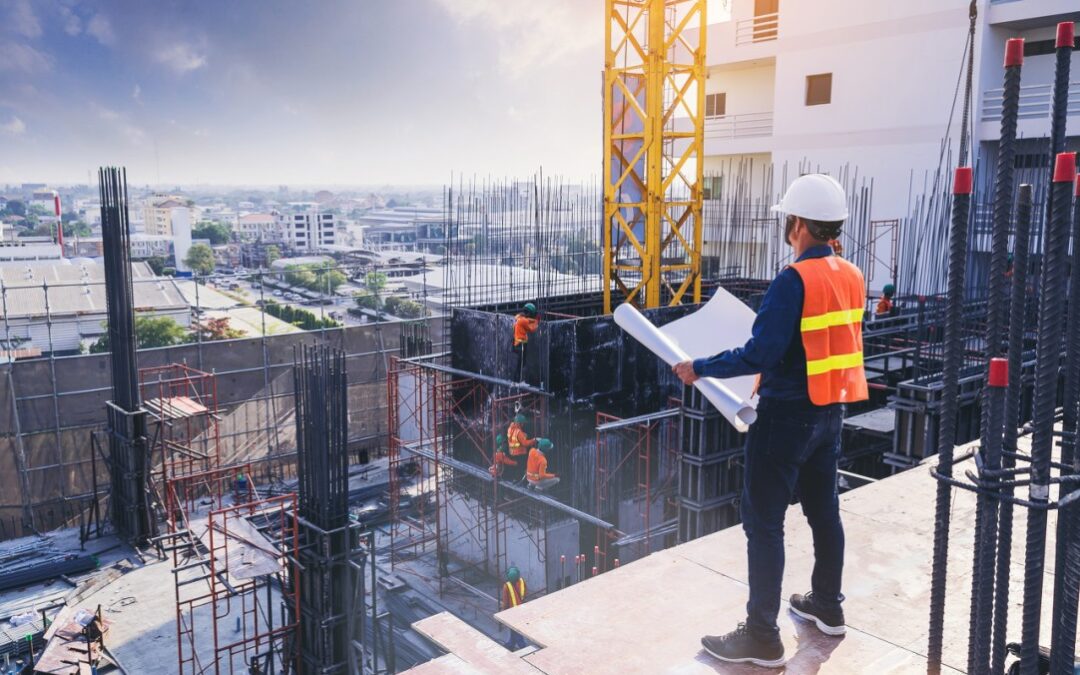The construction industry, a cornerstone of economic development and societal progress, is on the brink of transformative change. As we navigate the complexities of the 21st century, the future of construction is being shaped by technological advancements, sustainability imperatives, and innovative approaches to design and construction. In this article, we will explore key trends and developments that are poised to define the future of the construction industry.
Emergence of Sustainable Construction Practices:
Sustainable construction is no longer an option; it’s a necessity. With a growing awareness of environmental issues, the construction industry is embracing eco-friendly practices. From the use of recycled materials and energy-efficient designs to the implementation of green building certifications, sustainability is becoming a fundamental aspect of construction projects. The future will witness a surge in demand for buildings that minimize their ecological footprint and contribute to a more sustainable future.
Integration of Advanced Technologies:
Building Information Modeling (BIM):
BIM revolutionizing the way projects planned, designed, and executed. This digital representation of the physical and functional characteristics of a building allows for enhanced collaboration. Improved decision-making, and more efficient project management. BIM is expected to become standard practice in the construction industry, reducing errors, optimizing workflows, and enhancing overall project efficiency.
Augmented Reality (AR) and Virtual Reality (VR):
AR and VR technologies are finding applications in construction for design visualization, project planning, and on-site training. These immersive technologies enable stakeholders to experience and interact with virtual models, enhancing communication and facilitating better-informed decision-making. In the future, AR and VR will likely become integral tools for enhancing both the design and construction phases of projects.
Drones and Robotics:
Drones are increasingly being used for surveying, site inspection, and project monitoring. Their ability to capture high-resolution images and generate accurate topographic maps expedites surveying processes. Additionally, robotics is making its mark in construction. Automated machinery use for tasks such as bricklaying and concrete pouring, reducing labor-intensive processes and improving precision.
Prefabrication and Modular Construction:
Prefabrication and modular construction methods are gaining traction for their efficiency and cost-effectiveness. Off-site manufacturing of building components allows for faster construction timelines, reduced waste, and improved quality control. In the future, we can expect an increased shift towards modular construction as projects seek to balance speed, cost, and sustainability.
Smart Buildings and the Internet of Things (IoT):
The era of smart buildings is dawning, where structures equipped with IoT devices that enhance functionality, energy efficiency, and occupant comfort. Smart sensors, automated systems, and data analytics enable buildings to adapt to changing conditions. Optimizing energy usage and providing a more personalized experience for occupants. The future will witness a proliferation of intelligent buildings that seamlessly integrate technology to create more responsive and efficient living and working spaces.
Resilience and Disaster-Resistant Design:
With the increasing frequency and intensity of natural disasters, resilience is becoming a key consideration in construction. Future projects will prioritize designs and materials that can withstand earthquakes, hurricanes, floods, and other disasters. This shift towards disaster-resistant construction reflects a commitment to building structures that can endure the challenges posed by a changing climate.
Collaborative and Integrated Project Delivery:
The future of construction marked by a move towards more collaborative and integrated project delivery models. Cross-disciplinary collaboration, involving architects, engineers, contractors, and other stakeholders, will be essential for successful project outcomes. Integrated project delivery fosters communication, transparency, and efficiency, ultimately leading to better-designed and executed projects.
Conclusion:
The future of the construction industry is a landscape of innovation, sustainability, and adaptability. As we navigate the challenges of a rapidly evolving world. The construction sector is embracing technologies and practices that not only enhance efficiency and cost-effectiveness but also prioritize environmental responsibility and resilience. By staying at the forefront of these trends, the construction industry is not only shaping the physical landscape of tomorrow but also contributing to a more sustainable and interconnected future.

